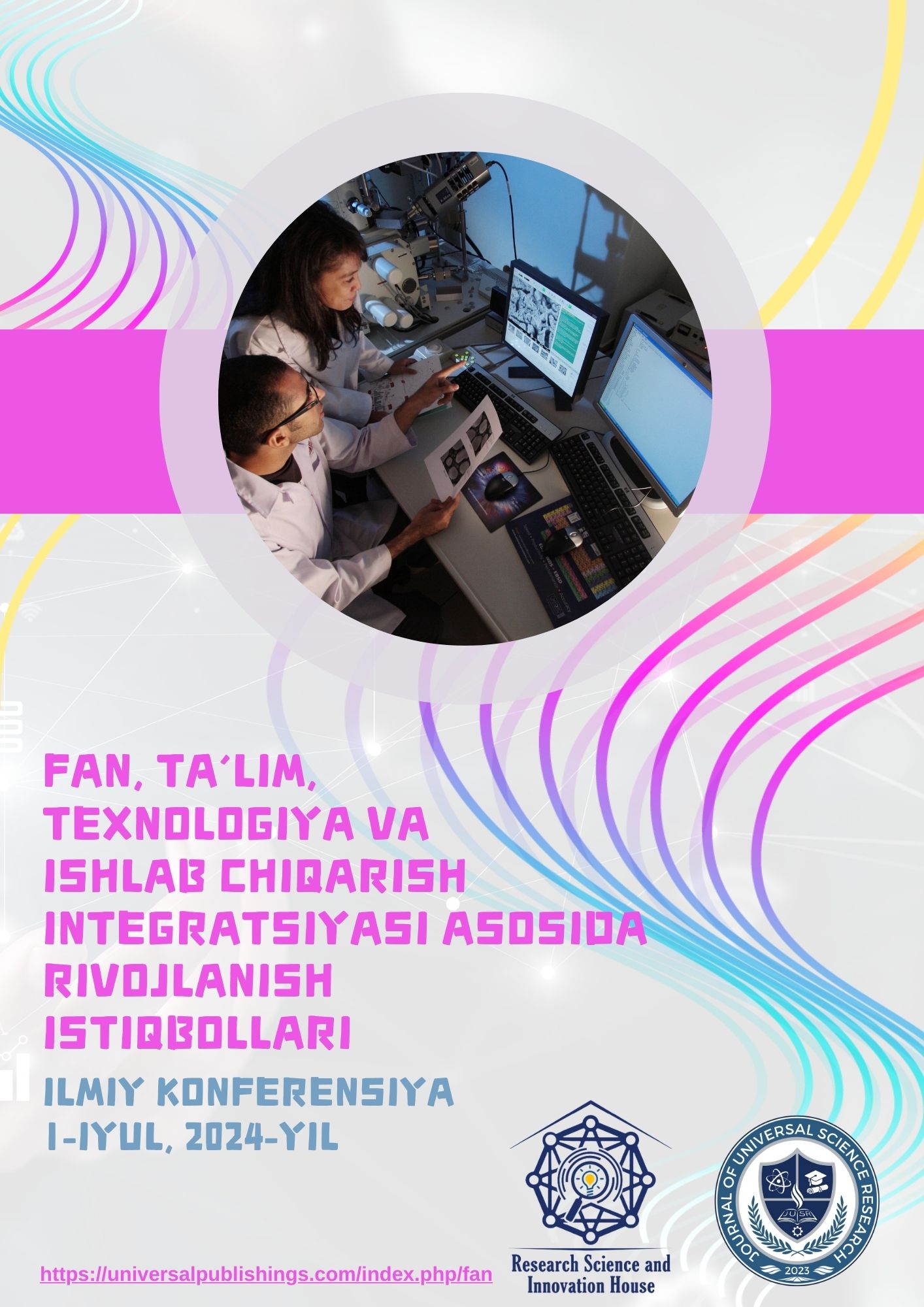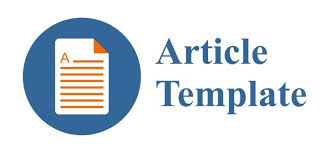THE ROLE OF CONTEXT IN LANGUAGE: EXPLORING SPEECH ACTS AND DISCOURSE
Keywords:
Pragmatics, speech act theory, discourse analysis, context, meaning, illocutionary acts, locutionary acts, perlocutionary acts, communication, social interaction, turn-taking, cohesion, coherence, power dynamics, implicature, deixis, discourse markers, language structure, intention, social roles, language use, power and ideology.Abstract
: This article explores the key concepts of pragmatics, speech act
theory, and discourse analysis, all of which are central to understanding the
dynamics of communication in both spoken and written language. Pragmatics
examines how meaning is shaped by context, highlighting the role of situational
factors, speaker intentions, and social roles in interpreting language. Speech act
theory, rooted in the work of J.L. Austin and John Searle, builds on this by
categorizing language use into three types of acts—locutionary, illocutionary,
and perlocutionary—that focus on how language performs actions, such as
requesting or asserting. Discourse analysis extends these ideas by studying the
structure and organization of longer stretches of language, looking at how
speakers manage turn-taking, maintain coherence, and reflect power dynamics
in conversation. The article emphasizes the interconnectedness of these fields,
showing how they together offer a comprehensive framework for analyzing
language use in real-life communication. The article is valuable for students and
scholars of linguistics, communication, and social interaction, offering insights
into the complex processes of meaning-making that underlie everyday discourse.
References
1. Austin, J. L. (1962). How to Do Things with Words. Harvard University
Press.
2. Brown, P., & Levinson, S. C. (1987). Politeness: Some Universals in
Language Usage. Cambridge University Press.
3. Grice, H. P. (1975). Logic and Conversation. In P. Cole & J. Morgan
(Eds.), Syntax and Semantics, Volume 3: Speech Acts (pp. 41–58).
Academic Press.
4. Holmes, J. (2013). An Introduction to Sociolinguistics (4th ed.).
Routledge.
5. Searle, J. R. (1969). Speech Acts: An Essay in the Philosophy of
Language. Cambridge University Press.
FAN, TA’LIM, TEXNOLOGIYA VA ISHLAB CHIQARISH
INTEGRATSIYASI ASOSIDA RIVOJLANISH ISTIQBOLLARI
150
6. van Dijk, T. A. (1997). Discourse as Structure and Process. Sage
Publications.
7. Yule, G. (1996). Pragmatics. Oxford University Press.
8. Teshaboyeva, N., & Mamayoqubova, S. (2020). COMMUNICATIVE
APPROACH TO LANGUAGE TEACHING. In МОЛОДОЙ
ИССЛЕДОВАТЕЛЬ: ВЫЗОВЫ И ПЕРСПЕКТИВЫ (pp. 409-414).
9. Teshaboyeva, N. (2020). LINGUISTIC PERSONALITY, ITS
STRUCTURAL CHARACTERISTICS IN THE NEW PERSPECTIVE
DIRECTIONS. In МОЛОДОЙ ИССЛЕДОВАТЕЛЬ: ВЫЗОВЫ И
ПЕРСПЕКТИВЫ (pp. 415-420).
10.Teshaboyeva, N. Z. (2019). TEACHING ENGLISH THROUGH
LITERATURE INTESL AND TEFL CLASSROOMS. In
СОВРЕМЕННЫЕ ТЕХНОЛОГИИ: АКТУАЛЬНЫЕ ВОПРОСЫ,
ДОСТИЖЕНИЯ И ИННОВАЦИИ (pp. 82-84).
11.Хидирова, Д., & Тешабоева, Н. (2022). Pedagogical conditions for the
development of the healthy thinking in students. Zamonaviy innovatsion
tadqiqotlarning dolzarb muammolari va rivojlanish tendensiyalari:
yechimlar va istiqbollar, 1(1), 120-122.
12.Gaybullayeva, N. D. K., & Kizi, T. N. Z. (2022). THE ROLE OF
INNOVATIVE METHODS FOR LISTENING COMPREHENSION IN
TEACHING LANGUAGE LEARNERS FOREIGN LANGUAGES
AND MAINLY ENGLISH. Central Asian Research Journal for
Interdisciplinary Studies (CARJIS), 2(10), 8-10.
13.Teshaboyeva Nafisa Zubaydulla qizi, Jurayev Muhammadrahim Murod
o’g’li, & Mamirova Munisa Rajab qizi. (2021). Language Learning
Culturally and the Role of Literature in Teaching Process. Central Asian
Journal of Theoretical and Applied Science, 2(3), 1-5. Retrieved from
https://www.cajotas.centralasianstudies.org/index.php/CAJOTAS/article
/view/84
14.Teshaboyeva, N. (2023). THE IMPORTANCE OF TOURISM IN
PRESENT DAY. Журнал иностранных языков и лингвистики, 5(5).
15.Teshaboyeva, N. (2023). THE MODERN INNOVATIVE
TECHNOLOGIES IN TEACHING FOREIGN LANGUAGES. Журнал
иностранных языков и лингвистики, 5(5).
16.Teshaboyeva, N. Z. (2023, November). Adjective word group and its
types. In " Conference on Universal Science Research 2023" (Vol. 1, No.
11, pp. 59-61).
FAN, TA’LIM, TEXNOLOGIYA VA ISHLAB CHIQARISH
INTEGRATSIYASI ASOSIDA RIVOJLANISH ISTIQBOLLARI
151
17.Teshaboyeva, N. Z. (2023, November). Modifications of Consonants in
Connected speech. In " Conference on Universal Science Research 2023"
(Vol. 1, No. 11, pp. 7-9).
18.Teshaboyeva, N., & Rayimberdiyev, S. (2023, May). THE
IMPORTANCE OF USING MULTIMEDIA TECHNOLOGY IN
TEACHING ENGLISH CLASSES. In Academic International
Conference on Multi-Disciplinary Studies and Education (Vol. 1, No. 8,
pp. 149-153).
19.Nafisa, T., & Marina, S. (2023). TEACHING AND LEARNING OF
ENGLISH VOCABULARY IN TESL AND TEFL CLASSROOMS.
International Journal of Contemporary Scientific and Technical Research,
465-469.
20.Teshaboyeva Nafisa Zubaydulla kizi, & Akramov Ibrohimjon. (2023).
WORD FORMATION. COMPOUNDING. "XXI ASRDA
INNOVATSION TEXNOLOGIYALAR, FAN VA TAʼLIM
TARAQQIYOTIDAGI DOLZARB MUAMMOLAR" Nomli Respublika
Ilmiy-Amaliy Konferensiyasi, 1(12), 109–113. Retrieved from
https://universalpublishings.com/index.php/itfttdm/article/view/3187
21.Teshaboyeva, N., & Yakubova, N. (2023). CHANGES OF MEANING
OF WORDS. Центральноазиатский журнал образования и
инноваций, 2(12), 126-129.
22.Sharifova Dinora Tohir qizi, & Teshaboyeva Nafisa. (2023). “ NOUNS
AND THEIR GRAMMATICAL CATEGORIES”. Новости
образования: исследование в XXI веке, 2(16), 292–297. извлечено от
http://nauchniyimpuls.ru/index.php/noiv/article/view/13128
23.Teshaboyeva Nafisa Zubaydulla kizi, & Akramov Ibrohimjon. (2023).
WORD FORMATION. COMPOUNDING. "XXI ASRDA
INNOVATSION TEXNOLOGIYALAR, FAN VA TAʼLIM
TARAQQIYOTIDAGI DOLZARB MUAMMOLAR" Nomli Respublika
Ilmiy-Amaliy Konferensiyasi, 1(12), 109–113. Retrieved from
https://universalpublishings.com/index.php/itfttdm/article/view/3187
24.Qodirova Aziza Yunusovna, & Teshaboyeva Nafisa Zubaydulla qizi.
(2023). “VERBS AND THEIR GRAMMATICAL
CATEGORIES”. Новости образования: исследование в XXI
веке, 2(16), 280–283. извлечено от
http://nauchniyimpuls.ru/index.php/noiv/article/view/13126
25.Tuxtayeva Aziza Ilhom qizi, & Teshaboyeva Nafisa. (2023). Word
Formation: Compounding . "Conference on Universal Science Research
FAN, TA’LIM, TEXNOLOGIYA VA ISHLAB CHIQARISH
INTEGRATSIYASI ASOSIDA RIVOJLANISH ISTIQBOLLARI
152
2023", 1(12), 113–115. Retrieved from
https://universalpublishings.com/index.php/cusr/article/view/3185
26.Teshaboyeva Nafisa Zubaydulla, & Iskandarova Sarvinoz Shukurullo
qizi. (2023). THE CLASSIFICATION OF SYNONYMS AND THEIR
SPECIFIC FEATURES. "XXI ASRDA INNOVATSION
TEXNOLOGIYALAR, FAN VA TAʼLIM TARAQQIYOTIDAGI
DOLZARB MUAMMOLAR" Nomli Respublika Ilmiy-Amaliy
Konferensiyasi, 1(12), 126–131. Retrieved from
https://universalpublishings.com/index.php/itfttdm/article/view/3191
27.Тешабоева, Н. (2023). Teaching writing as a major part of productive
skills in mixed ability classes . Информатика и инженерные
технологии, 1(2), 652–656. извлечено от
https://inlibrary.uz/index.php/computer-engineering/article/view/25759
28.Teshaboyeva, N., & Yakubova, N. (2023). WORD FORMATION.
COMPOUNDING. Development of pedagogical technologies in modern
sciences, 2(12), 187-192.
29.Teshaboyeva, N. (2023). Compound sentences in the English
language. Yangi O'zbekiston taraqqiyotida tadqiqotlarni o'rni va
rivojlanish omillari, 2(2), 68-70.
30.Nafisa, T. (2023). THE USA ECONOMY, INDUSTRY,
MANUFACTURING AND NATURAL RESOURCES OF GREAT
BRITAIN. INTERNATIONAL JOURNAL OF RECENTLY SCIENTIFIC
RESEARCHER'S THEORY, 1(9), 94-97.
31.Nafisa, T. (2023, December). Secondary ways of word formation. In "
Conference on Universal Science Research 2023" (Vol. 1, No. 12, pp.
109-112).
32.Nafisa, T. (2023). VOWELS AND THEIR
MODIFACATIONS. Новости образования: исследование в XXI
веке, 2(16), 298-305.
33.Nafisa, T. (2023, December). Secondary ways of word formation. In "
Conference on Universal Science Research 2023" (Vol. 1, No. 12, pp.
109-112).
34.Nafisa, T. (2023). THE EDUCATION SYSTEM OF THE USA:
PRESCHOOL EDUCATION, SECONDARY AND HIGHER
EDUCATION, SCHOOL FORMS. The Role of Exact Sciences in the Era
of Modern Development, 1(6), 53-57.
FAN, TA’LIM, TEXNOLOGIYA VA ISHLAB CHIQARISH
INTEGRATSIYASI ASOSIDA RIVOJLANISH ISTIQBOLLARI
153
35.Qizi, T. N. Z., & Umedovich, M. Y. (2023). AMERICAN-BASED
PRONUNCIATION STANDARDS OF ENGLISH. Scientific
Impulse, 2(15), 563-567.
36.Nafisa, T. (2023, December). Word Formation: Compounding. In "
Conference on Universal Science Research 2023" (Vol. 1, No. 12, pp.
113-115).
37.Nafisa, T. (2023). NOUNS AND THEIR GRAMMATICAL
CATEGORIES. Новости образования: исследование в XXI
веке, 2(16), 292-297



